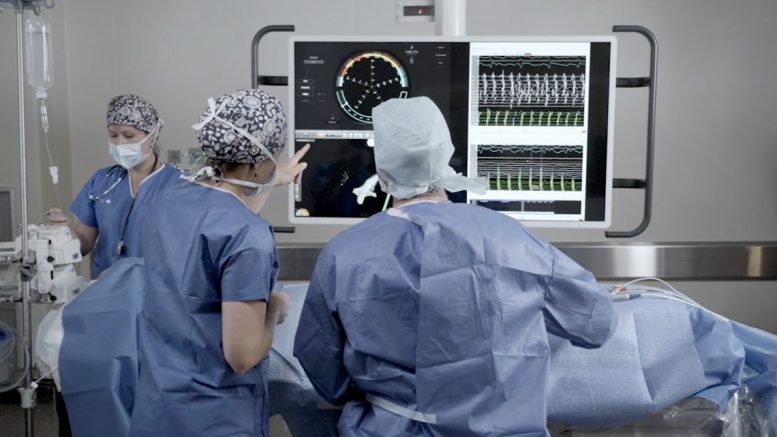Volta Medical, a pioneering French-based HealthTech startup, working on novel artificial intelligence algorithms to treat cardiac arrhythmias, has raised 23 million Euros. The new capital will allow the company to develop its revolutionary FDA-cleared and CE marked VX1 AI software solution as a new standard of care.
After developing the first commercially available AI software to help electrophysiologists improve management of cardiac arrhythmias, Volta Medical is now preparing to transform the way ablation procedures will take place in the future.
Theophile Mohr-Durdez, CEO and co-founder of Volta Medical said: “We are excited to be able to complete our highly ambitious medical program with the start of TAILORED-AF, a new randomized controlled trial. This trial aims to demonstrate how our AI software can help physicians optimize both efficacy and efficiency when performing complex procedures to treat heart rhythm disturbances.”
The TAILORED-AF trial
Recruitment for the TAILORED-AF, an international multi-center trial has already started. It is hoped that the results will provide a breakthrough approach for tackling one of the world’s greatest public health challenges in a more consistent and reproducible manner. Atrial fibrillation (AF) currently affects over 30 million patients worldwide.
The TAILORED-AF trial is designed to compare the VX1 AI software ablation strategy with currently used conventional anatomical ablation approaches.
According to Dr Tom De Potter, Head of Electrophysiology, OLV Hospital, Aalst, Belgium and one of the TAILORED-AF trial investigators, “treatment of the more severe forms of drug-resistant persistent AF remains a major challenge in our field, both due to the large number of patients affected and lack of therapeutic strategies that can offer predictable efficacy. Thanks to the software’s ability to identify signals that are relevant, from those that are less relevant, one of its greatest and most unique benefits is to allow for a more easily reproducible approach to ablation.” The results of the Ev-AIAFIB proof of concept study carried out with VX1 in 8 different centers will soon be published. They will provide data on why and how this new approach has the potential to provide electrophysiologists with a guidance tool that will optimize treatment of patients with AF in a lasting manner.
Conventional ablation methods, while useful for treating patients, who cannot tolerate or who are resistant to anti-arrhythmic drug therapy, have so far been less precise than desired. Their results, even if significant in certain cases, remain sub-optimal. Localization and ablation of drivers perpetuating AF have been at the forefront of cardiovascular disease research but have not led to any radical changes to-date. Volta’s system is intuitive, user-friendly and shows promise to potentially reduce inter-operator variability in the analysis of procedural data without lengthening either the diagnostic or therapeutic procedures.
“We are eager to help new centers access and use our revolutionary tool during ablation procedures. This cutting-edge medical innovation enhances the efficiency and precision of the practitioners who are analyzing real-time data in the operating room. Its robustness will help physicians adopt a more efficient workflow and take the right decisions” – claimed physician co-founder, Jerome Kalifa.
Janke Dittmer of Glide Healthcare, which led the funding round, comments: “We are excited to support Volta’s team in bringing a unique solution to address one of the biggest unmet needs in the large and fast-growing electrophysiology market”.





